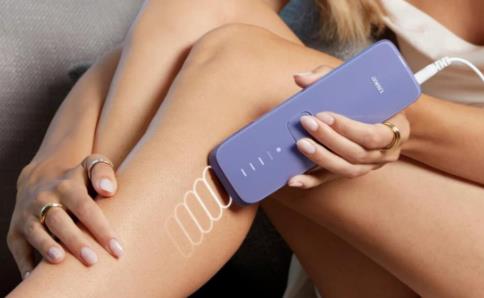Have you recently felt that your skin hurts when you touch it and even a light touch feels painful? However, there is no visible cause behind this pain and no allergies or rashes either. So, are you wondering why your skin is more sensitive to touch all of a sudden and how you can deal with it?
Well, there can be multiple causes of the hypersensitivity of the skin to touch. Some include autoimmune diseases, weak defense, and infections while others are neurological and musculoskeletal disorders.
In this article, let us talk about the most common conditions that result in skin sensitivity and find out the methods to treat and prevent them. So, let us help you comprehend why your skin is sensitive to touch without having rashes here.
Table of Contents:
- Part 1: Symptoms of Skin Sensitivity
- Part 2: Conditions Resulting in Skin Sensitivity to Touch Without Rashes
- Part 3: Everything About Allodynia
- Part 4: Everything About Hyperalgesia
- Part 5: Products for Sensitive Skin
Part 1: Symptoms of Skin Sensitivity

Skin sensitivity to touch can have any of the following presenting symptoms,
- Pricking pain that feels like multiple needles are piercing through your skin
- Burning pain that feels like your skin has been set on fire causing burns of varying intensity
- Stabbing pain which makes you feel like a sharp broken piece of glass has passed through your skin
- Itching or stinging without visible rashes
These symptoms can be triggered by some meals that have high fats in them just like eczema. The foods triggering eczema are mentioned in top foods known to trigger eczema.
Part 2: Conditions Resulting in Skin Sensitivity to Touch Without Rashes

Our body has countless nerve endings which carry the signals to the brain from the body and vice versa. One of the most frequently carried signals from the skin to the brain is that of pain.
At times, either these pain nerve endings are overly stimulated by a mild touch or the brain perceives the signals excessively and shows an exaggerated response. In both cases, the skin becomes too sensitive to touch with no visible rashes.
The most common diseases resulting in this hypersensitivity are,
- Allodynia
- Hyperalgesia
We will discuss both conditions one by one below.
Part 3: Everything About Allodynia

Let us first talk about allodynia. Allodynia is defined as “pain caused by an environmental factor or stimulus that does not normally result in any discomfort or pain.
This definition has been further elaborated by an informative article by the National Library of Medicine [1]. Additionally, about 15-50% of the patients having neuropathic pain also experience allodynia or hyperalgesia as determined in a medical review published in The Lancet Neurology Journal [2].
Causes of Allodynia
The causes of allodynia are given below,
- Fibromyalgia: It is a chronic disease affecting muscles and nerves. Its association with tenderness has been described in an overview by the National Institute of Arthritis and Musculoskeletal and Skin Diseases [3].
- Peripheral neuropathy: Peripheral neuropathy is a disease of the nerves of the limbs which can result in over-sensitivity to touch.
- Shingles: It is the infection caused by the varicella zoster virus which becomes latent in the nerves after treatment of its primary infection chickenpox.
- Multiple sclerosis: It is an autoimmune chronic disease that results in fibrosis of the nerves in the body and the brain.
- Diabetic neuropathy: Diabetes also affects the nerves resulting in a painful condition called diabetic neuropathy.
- Genes: Allodynia can also be caused by abnormality in the genes. PIEZO2 has proved to be the culprit in the development of tactile allodynia as determined in a clinical trial [4].

Treatment of Allodynia
- Treat the cause: Allodynia is rarely without a cause. So, you should pay attention to finding the cause with the help of your doctor. After that, treatment of the underlying disorder greatly alleviates the pain.
- Lifestyle changes: Lifestyle changes can help in soothing the pain and strengthening your body against it. These include healthy food, adequate hydration, and diet.
- Medicines: Painkillers like pregabalin and NSAIDs can reduce the pain as explained in an article by PubMed Central [5]. Moreover, topical drugs like lidocaine gel can be useful [6]. Lastly, cannabinol extracts are helpful in severe cases of allodynia [7].
- Physical therapy: Physical therapy works for allodynia by gradually desensitizing your nervous system and enabling it to slowly increase the pain threshold.
- Psychological therapy: It helps in the reduction of the mental toll caused by pain. Disturbed mental health might be the factor enhancing the pain.
- Device implantation: Implantation of devices that transmit electrical signals to the spinal cord through a surgical procedure is used in unresponsive cases.
Prevention of Allodynia
Prevention is always better than cure, right? Therefore, take the following measures if you feel like your skin is sensitive and can be affected by allodynia.
- Regular checkups: If you have a family history of allodynia, it is advised to get regular medical checkups. Also, get treated as soon as your doctor finds any abnormality in the tactile senses of your body.
- Vaccination: Vaccination for viral and bacterial diseases including varicella zoster and staph aureus reduces the risk of allodynia caused by shingles and other skin infections.
- Exercise and diet: A healthy diet and regular exercise help in improving the body’s defense against overstimulation of nerves.
- Treatment of the diseases: If you are suffering from any of the diseases mentioned above, treatment of such conditions can be the best prevention.
Part 4: Everything About Hyperalgesia

Hyper means “excessive” and algesia is “pain. So, hyperalgesia means excess pain to a mild stimulus.
It is a disorder similar to allodynia. However, in this condition, the pain and discomfort is exaggerated. It means that an irritating stimulus is present. This stimulus might not be as painful for others as it is for you.
Causes of Hyperalgesia
The causes of hyperalgesia are different as compared to allodynia and these are given as,
- Primary hyperalgesia: Primary hyperalgesia means the pathology resulting in exaggerated pain lies at the level of direct injury at that site. For example, burns leading to contractures, surgeries causing overstimulation of nerve endings, and trauma.
- Secondary hyperalgesia: In secondary hyperalgesia, the pain is secondary to a disease process. For example, diabetic neuropathy, any cancer in its advanced stages, complex pain syndrome, auto-immune diseases like multiple sclerosis, inflammatory diseases like lupus, and migraine.
- Opioid-induced hyperalgesia: Chronic use of opioid-containing medicines such as morphine reduces your natural pain tolerance and makes you dependent on it. In addition, you also develop a tolerance for opioids and need a larger dose of the medicine progressively over time for the same results.
Treatment of Hyperalgesia
Hyperalgesia can be treated by 2 options.
- Medicines: Over-the-counter medicines like paracetamol, NSAIDs, and steroids can reduce the pain. However, drugs like buprenorphine, ketamine, methadone, and tramadol are specifically used against hyperalgesia. These drugs block the receptors on the nerves and prevent pain transmission.
- Modalities to treat nerves: Other moralities work by affecting the nerves directly. These are surgical procedures including nerve block, nerve ablation, and transcutaneous electric nerve stimulation.
- Tapering of the opioid-induced hyperalgesia: The only treatment of OIH is reducing the dose of opioids gradually and shifting to another pain killer as explained in a study by PubMed [8].
Prevention of Hyperalgesia
There is not much to do for the prevention of hyperalgesia as its incidence is unpredictable. However, you can prevent sunburns, infection, and overuse of opioids.
Part 5: Products for Sensitive Skin

If your skin is too sensitive to touch and it hurts even when you are putting on skincare or makeup products, we suggest you use the mildest and most gentle products with nourishing ingredients. Let us see a few of such products.
Makeup Remover and Cleansers
Although putting the makeup on and removing it can be a little uncomfortable for people suffering from allodynia, you have to continue your routine, right? So, switch to makeup products that apply smoothly on the skin without much effort.
Additionally, get yourself some highly-reputed makeup removers for sensitive skin to gently melt the makeup away and cleanse your skin. You can find some of the options for the best makeup removers for every skin type.
Moisturizers
Even if you want to keep your skincare routine basic, a moisturizer is a must because the symptoms are worse in dull and dehydrated skin. So, lightweight and highly-absorbable moisturizers with thin consistency can work well for you.
Some of the Best lotions for sensitive skin are mentioned here.
Sunscreen
Look for a sunscreen with a thin consistency, a milk-like texture, and no white cast so that you apply it easily without having to rub and irritate your skin.
Get yourself the most suitable sunscreen by following the instructions mentioned in how to choose the best sunscreen.
Hair Removal Products
Lately, hair removal can be tricky because the conventional methods of hair removal are painful or abrasive. So, we recommend you invest in an IPL device for gentle and long-lasting hair removal.
The Best IPL devices for sensitive skin are mentioned here. Out of these, Ulike Air3 is the best known for its sapphire ice-cooling technology. So, it offers a cooling and comfortable hair removal.
Conclusion
Our skin has pain nerve endings but they are not stimulated by mere touch generally. So, it is likely that you have an underlying condition if your skin feels sensitive and hurts when you touch it. Two such conditions causing hypersensitivity are allodynia and hyperalgesia.
Allodynia occurs when you feel pain without any discomforting stimulus. However, the response of the brain to a stimulus is increased resulting in hyperalgesia. Both disorders are caused by trauma, surgery, inflammatory diseases, auto-immune disorders, and side effects of medicines as well.
The treatment and prevention of these conditions is mainly controlling and treating the disease causing them. Lastly, we have some products you can use without triggering the pain.

 By myulikeadmin
By myulikeadmin



